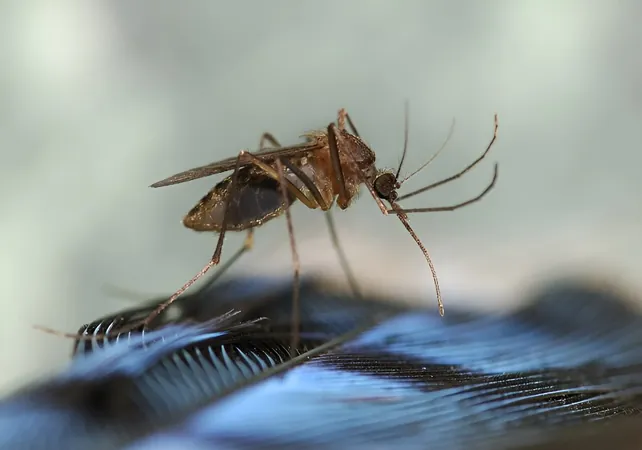
Climate Change Fuels the Rise of Mosquito-Borne Diseases: A Looming Public Health Crisis
2024-09-23
Climate Change Fuels the Rise of Mosquito-Borne Diseases
Mosquito-borne diseases are making headlines as climate change exacerbates their reach and impact. Among these diseases is Eastern equine encephalitis (EEE), a serious condition that can lead to severe fever, seizures, and neurological complications in survivors. Shockingly, about one-third of EEE cases result in death, raising alarms among public health officials. The disease, which was once considered rare in the United States, has seen an uptick, with four alarming cases recently documented in Massachusetts.
What's Driving the Surge?
But what's driving this surge? Experts are pointing fingers at climate change. The northeastern U.S. has been experiencing warmer and wetter summers, creating a breeding ground for mosquitoes that carry deadly diseases. As seasons shift, the risk associated with these pests is extending, with warmer weather arriving earlier and lingering later into the year. This perfect storm of climatic conditions could usher in an era where mosquito-borne diseases become increasingly prevalent and hard to combat.
Expert Insights
Renowned experts from the University at Albany, Alexander Ciota and Oliver Timm, have been at the forefront of this critical conversation. Ciota, an associate professor and head of the Arbovirus Laboratory at the Wadsworth Center, emphasizes how the intricate interplay between climate variables and mosquito populations is reshaping the landscape of disease transmission. "The effects of climate variation on different pathogens depend on their unique ecological needs and mosquito vectors," he explains.
As the temperature rises, both the emergence of spring mosquitoes and their decline in the fall are influenced primarily by environmental cues—mostly temperature. This warming climate not only extends the period during which mosquitoes are active but also increases their numbers significantly. As Ciota notes, "Mosquitoes develop faster at higher temperatures, and a warmer climate correlates with a higher likelihood of virus transmission since heat accelerates viral replication."
Timm, who specializes in atmospheric and environmental sciences, warns that climate change is pushing mosquito species into new territories. "We’re witnessing disease vectors infiltrating areas where they had previously struggled to survive," he states, highlighting how rising temperatures are sending these pests to higher elevations and previously inhospitable regions. The optimal temperature range for the West Nile Virus to spread is between 73°F and 78°F, a range that’s becoming increasingly common due to climate shifts.
Evolving Public Health Risks
With these changes, public health risks are evolving as well. Communities must brace for potential outbreaks in areas that might have been considered safe. The implications are profound—not just for health systems, but for individuals who may find themselves facing diseases that were once confined to other regions or climates.
Urgent Call for Action
Experts urge for proactive public health interventions to mitigate these risks. Protective strategies include community awareness campaigns, improved monitoring of mosquito populations and diseases, and stronger surveillance of climatic changes that could influence these vectors.
As we grapple with the realities of climate change, the fight against mosquito-borne diseases is far from over. It’s a wake-up call for communities to take action, ensuring that we safeguard public health against the potent combination of rising temperatures and resilient disease vectors. Will your community be ready for the looming threats that lie ahead?




 Brasil (PT)
Brasil (PT)
 Canada (EN)
Canada (EN)
 Chile (ES)
Chile (ES)
 España (ES)
España (ES)
 France (FR)
France (FR)
 Hong Kong (EN)
Hong Kong (EN)
 Italia (IT)
Italia (IT)
 日本 (JA)
日本 (JA)
 Magyarország (HU)
Magyarország (HU)
 Norge (NO)
Norge (NO)
 Polska (PL)
Polska (PL)
 Schweiz (DE)
Schweiz (DE)
 Singapore (EN)
Singapore (EN)
 Sverige (SV)
Sverige (SV)
 Suomi (FI)
Suomi (FI)
 Türkiye (TR)
Türkiye (TR)